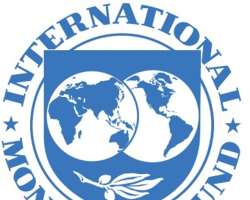Statement at the Conclusion of an IMF Mission to Guinea

CONAKRY, Guinea, January 22, 2014/African Press Organization (APO)/ -- An IMF mission led by Harry Snoek visited Conakry during January 9-17, 2013 to complete discussions on the third review of a program supported by an arrangement under the Extended Credit Facility (ECF),i which was approved by the IMF Executive Board on February 24, 2012 (see Press Release No. 12/57) in the amount of SDR 128.52 million (about US$194.99 million). The mission met with the President of the Republic, Alpha Condé and held working meetings with the State Minister of Economy and Finance, Mr. Kerfalla Yansané, the Minister for Plan, Sékou Traoré, the Minister Delegate for Budget, Mr. Mohammed Diaré, the Governor of the Central Bank of the Republic of Guinea, Mr. Lounceny Nabé, and other members of the government and policymakers. The mission also met with the leadership of the National Assembly, representatives of civil society and the donor community. Discussions focused on the review of measures in the 2014 budget and on the structural reform program.
At the conclusion of the mission Mr. Harry Snoek issued the following statement:
“The Guinean authorities and IMF staff have reached a preliminary agreement on a set of policies that could be supported by IMF management and the Executive Board, leading to the fourth disbursement under the ECF arrangement of SDR 18.36 million (about US$ 27.85 million).
“2013 was a difficult year for Guinea's economy. Civil unrest in the run-up to legislative elections in September and the slowdown of mining activity caused economic growth to decelerate from 3.8 percent in 2012 to 2.5 percent in 2013.
“Notwithstanding the difficult environment, however, the government has done a valiant job to maintain economic stability. The sharp drop in tax revenue was offset by lower public spending helping contain the overall fiscal deficit. This has allowed the quantitative performance criteria for end-June 2013 to be observed; provisional data also indicate that the end-December 2013 target has been met. Monetary policy has also been conducted prudently, allowing the inflation to decelerate to some 10 percent last month (compared to 12.8 percent at end-2012) against the backdrop of a steady level of reserves and a stable exchange rate of the Guinean franc.
“The government's ambitious structural reform program has however experienced delays. This partly reflects the difficult social and political situation, but also capacity constraints. This is an area where more focus and political support will be nece3ssary in the coming months.
“Prospects for 2014 are good. Growth is projected to rebound to 4½ percent in 2014, supported by the normalization of the political situation, the gradual resumption of investment in the mining sector, and the acceleration of growth in agriculture. Within the objective of consolidating the recent gains in macroeconomic stability, the 2014 budget aims at further increasing public investment to rebuild Guinea's infrastructure. Given the ambitious revenue targets for 2014, the mission recommends close monitoring of the revenue agencies to strengthen revenue administration. It will also be important to continue strong efforts to improve the financial position of the electricity company in order to relieve the serious power shortages.
“The government intends to continue its program of structural reforms to support broad-based and inclusive growth and to prepare for a possible mining boom in the coming years. The IMF mission encourages the authorities to continue their efforts to improve the investment climate by clarifying the institutional framework for the agencies and ministries responsible for investment promotion. Quick completion of the implementation regulations of the new mining code would reduce regulatory uncertainty and promote new investment. The mission is also looking forward to full implementation of the new procurement code.
“The IMF team thanks the authorities for their hospitality and for the constructive discussions.”
i The ECF is the IMF's main tool for medium-term financial support to low-income countries. Financing under the ECF currently carries a zero percent interest rate, with a grace period of 5½ years, and a maturity of 10 years.
